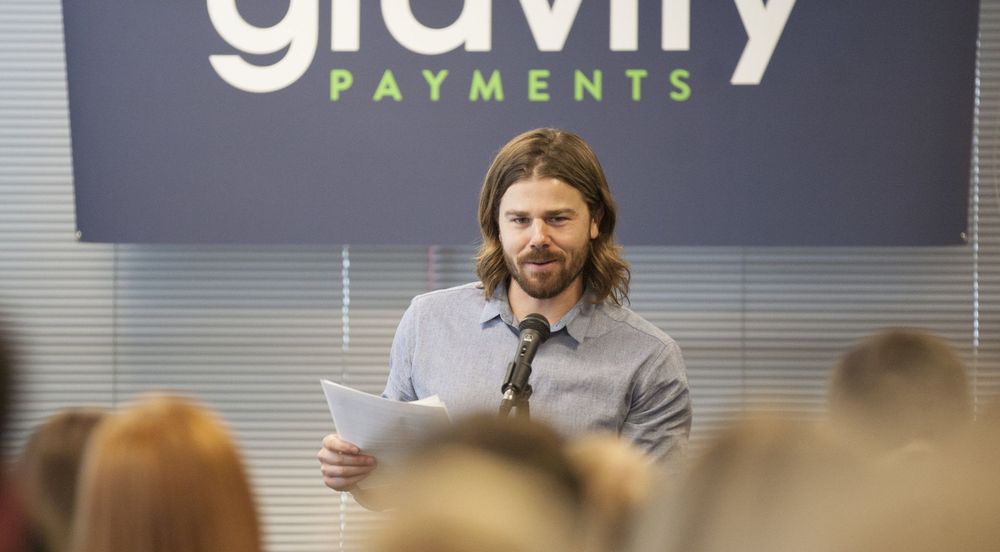Dan Price is an American entrepreneur who gained fame in 2015 by slashing his CEO salary by 90% to cover for the increment in his employees’ salary to a minimum of $70,000 per year. Price’s move earned mixed reactions, to say the least. On one hand, he was hailed as ‘as a capitalist with a conscience’ and earned comparisons to Robin Hood.
On the other hand, he was labeled a socialist, primarily by commentators on Fox News and Fox Business. Furthermore, some clients dropped his credit processing company Gravity, and he lost employees who thought the salary increment to be unfair. He also faced a lawsuit from his brother.
Dan stuck to his guns, however, and according to a recent Twitter thread, it has paid off massively. This piece will look at the stunning benefits of Dan’s selflessness, the challenges he’s faced, and his response to his ex-wife’s abuse allegations.
Dan’s decision to cut his salary by $930,000 has paid off as his company has almost tripled the value of payments it processes

Dan Price grew up in a religious family of six children outside Boise, Idaho. The idea to start a business revolving around credit cards came to Dan during middle school. His band, Straightforword, performed at a local coffee shop whose owner complained insistently about the high cost of credit card processing. Dan learned about swipe fees through the disgruntled owner.
Price’s father then landed a job in the credit card industry. He learned more about the industry from his dad, and in 2004, Price and his brother Lucas founded Gravity. Dan became CEO in 2006, and in 2008, the company almost went under. The financial crisis hit Gravity hard at a time when the company was only mildly profitable.
The company managed to stay afloat, however, and by 2012, Dan started handing out pay raised to his staff. He noted that with each pay raise came a surge in profit. The same year, Dan’s compensation ticked up to over $1 million.
His decision to slash his salary by 90% for the benefit of his employees came after a friend, who learned significantly lower than him, enlightened him about the struggles of having a meager salary. Dan thought back to a 2010 paper by Daniel Kahneman and Angus Deaton that concluded that people’s emotional well-being improves as their salary rises until their pay reaches around $75,000.
Dan, therefore, resolved to hike his employee’s salary to $70,000. In an email to Bloomberg, Dan’s friend, Valerie Molina, revealed: “Dan said, ‘I’m going to pay all my employees minimum $70,000. I’m not sure exactly how I’m going to do it, I need to run the numbers, but I am. Is that crazy?’”
Price is reaping the rewards of investing in his employees. In a series of tweets – in which he made sure to tag his harshest critics – Dan detailed Gravity’s exponential growth since 2015. Among other things, the company’s revenue has tripled, and the customer base has doubled. He added:
“We started our $70K min wage with about 130 employees in Seattle. It worked so well we expanded it to a new Boise office, where the cost of living is lower but people deserve good pay all the same. We now have about 200 employees.”
Dan’s company faced tough times due to the coronavirus pandemic, but things are looking up

In the aftermath of Dan’s uniform pay increase announcement, he lost two employees who complained that the increment was unfair to higher earners. He also lost clients who opined that the pay hike would lead to a rise in costs. Dan’s salary would cover much of the cost, and the rest would come from company profits.
Price didn’t worry much about a change in lifestyle as he had plenty of savings and trusted that his salary would grow with the company. “There’s greater inequality today than there’s been since the Great Recession,” Dan told The Huffington Post. “I’d been thinking about this stuff and just thought, ‘It’s time. I can’t go another day without doing something about this.”
There was no guarantee that Dan’s plan would succeed, but the numbers show that it has been an overwhelming success. The coronavirus pandemic threatened to derail the company’s progress, but the stakeholders made sacrifices to keep Gravity running. Dan wrote on The Washington Post that the employees agreed to temporary pay cuts, and thanks to sufficient cash reserves, Gravity kept running. He wrote:
“Instead of looking at our employees as expenses that could be cut, we acknowledged their humanity and the vital role they play in our business. In March and April, our sales were down, but every month since then, we’ve outperformed ourselves from last year. Avoiding layoffs helped our company weather the crisis.”
Dan’s ex-wife Kristie Colon accused Price of abusing her during their marriage
Dan and his ex-wife, then called Kristie Lewellyn, married aged 20 after Dan’s Christian parents demanded that they marry or end their relationship. The couple divorced in February 2012, and per reports, the couple had an amicable divorce.
Kristie, who changed her last name to Colon, cast doubt on the amicability of the couple’s divorce when she revealed that Dan abused her repeatedly. In an unreleased TEDx talk at the University of Kentucky in late October 2015 about the benefits of writing to deal with trauma, Kristie read from her journal:
“He got mad at me for ignoring him and grabbed me and shook me again. He also threw me to the ground and got on top of me. He started punching me in the stomach and slapped me across the face. I was shaking so bad.”
Colon recalled locking herself in a car, “afraid he was going to body-slam me into the ground again or waterboard me in our upstairs bathroom like he had done before.” “The events that you described never happened,” Dan told a Bloomberg reporter who read out the allegations to him. Price also sent a statement to The Guardian denying Kristie’s claims:
“Unfortunately, people in the public eye are subject to speculation and criticism. Sometimes it’s fair, other times it isn’t. The recent story in Businessweek contained reckless accusations and baseless speculations that are unequivocally false.”